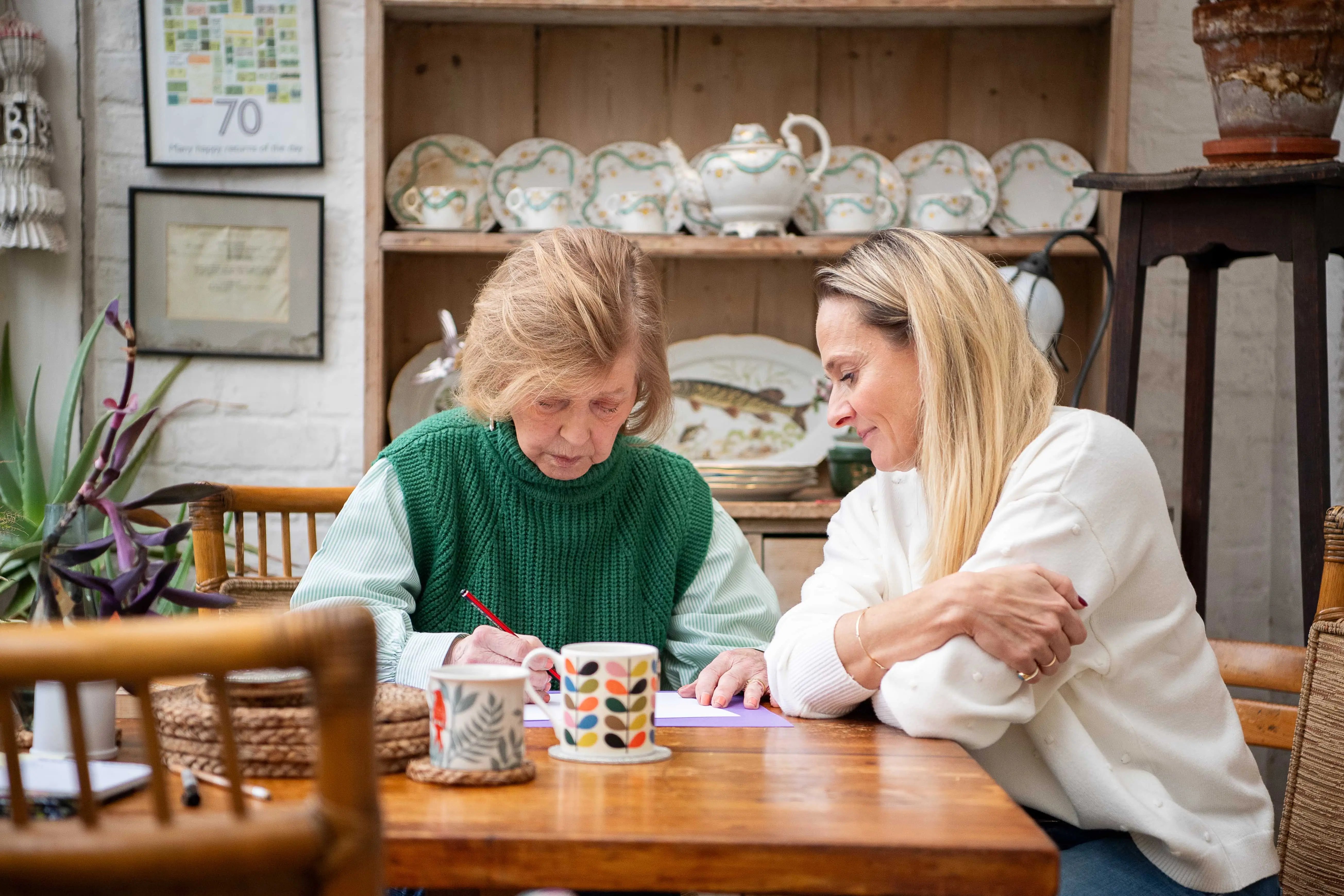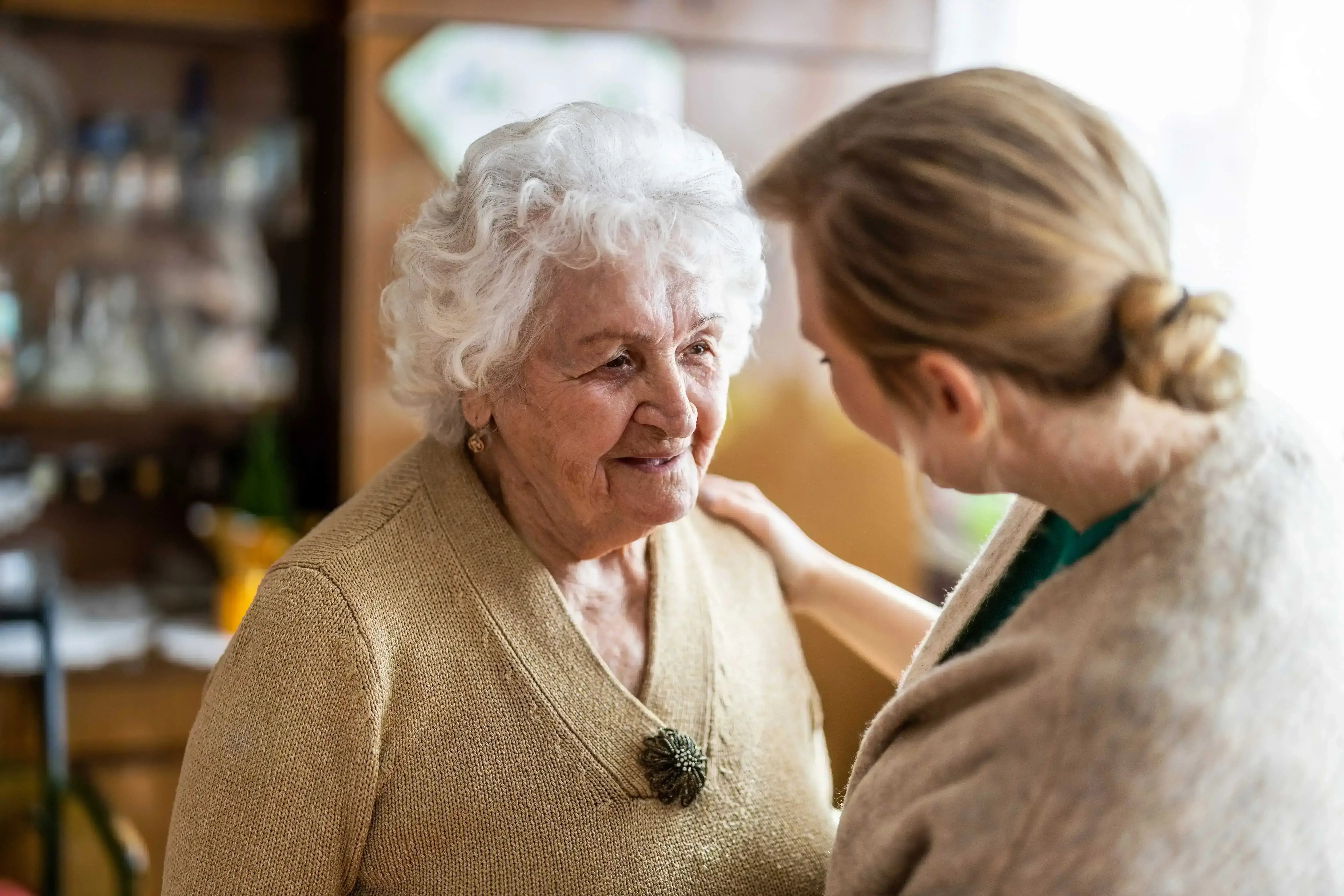Charity Workers
- Befriending volunteers
- Group activity coordinators
- Hospices
- Support workers
- Home care assistants
Why is Drawing and Talking such a beneficial resource for charities, volunteers and community outreach settings?
-
Cost-effectiveness: One of the primary advantages of Drawing and Talking therapy is its cost-effectiveness. This therapy does not require expensive materials or equipment: 12 pieces of paper, a pencil and document wallet per person. For charities and community organisations, often operating under budget constraints, this makes Drawing and Talking an attractive option. It allows them to offer a valuable therapeutic service without incurring significant additional costs.
-
Safe and easy delivery of intervention: Drawing and Talking has been specifically designed to be delivered by anyone who has received training to do so. No previous experience is necessary to become a Drawing and Talking Practitioner. .This means that charities and organisations can train paid staff and volunteers and have a greater impact on the communities they are passionate about. The limited resources need to deliver this approach mean that moving from venue to venue is also easy to manage.
-
Short term, time-limited, structured intervention: One-to-one sessions are 30-minutes, carried out once a week over a 12-week period. This structured approach ensures that the therapy is manageable both for the facilitators and for the older adults. It is often used as a relationship builder for those carers who are looking to support individuals in the long term, but have a limited amount of time each week to spend in person with their vulnerable adult. This work can be fully completed after 12 sessions or lead onto a deeper and more intimate caring relationship.
-
Emotional and mental health benefits: For older adults, this therapy provides a gentle way to express and explore emotions. This can be particularly beneficial for those who may struggle with traditional talking therapies. It can help in processing past experiences, dealing with loss or transitions, and reducing feelings of isolation and loneliness. In this way, it enhances their overall emotional and mental well-being.
- Adaptability and inclusiveness: The therapy is adaptable to different abilities and can be used effectively with a wide range of older adults, including those with cognitive impairments or communication difficulties. This inclusiveness is crucial for charities and community organisations that often cater to diverse groups.
- Enhancing social engagement: Drawing and Talking's group work approach is fundamental to any organisation working within community and charity settings. Group sessions of Drawing and Talking therapy can encourage social interaction among older adults. This can foster a sense of community and belonging, combating social isolation which is a common issue with people in this demographic.
-
Staff and volunteer empowerment: Training staff and volunteers in Drawing and Talking therapy is typically straightforward and doesn’t require a background in mental health care. This empowers staff to offer an additional supportive service to their clients, increasing the overall capacity and scope of the organisation's care provision.
-
Complementing existing services: Drawing and Talking therapy can complement other services offered by charities and community organisations. These include physical health activities, social events, or educational programs - offering a holistic approach to care for and support older adults.
Organisations working with older adults
Care Homes
- Care home manager
- Dementia leads and assistants
- Wellbeing coordinator
- Activities coordinator
- Care coordinator
- Recreational therapist
- Support assistants
Social Services
- Resident care coordinator
- Agency care workers
- Community mental health teams
- Memory care coordinator
- Nursing assistant
- Transition to residential care teams
NHS & Health Care
- Community nurses
- Geriatric nurse
- Dementia care specialist
- Behavioural specialist
- Counsellors and therapists
- Occupational therapist
- Speech-Language therapist
Courses tailored for you
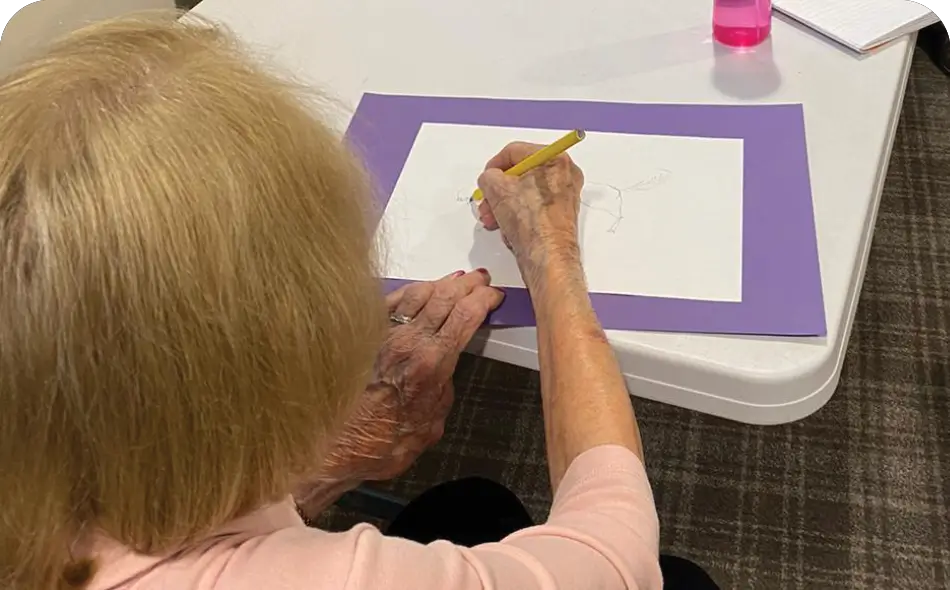
Foundation to Drawing and Talking for Older Adults
This one-day programme equips participants to deliver 1-to-1 Drawing and Talking sessions, focusing specifically on older adults.
1 day (9.00am to 3.30pm)
£299 + VAT (per delegate)
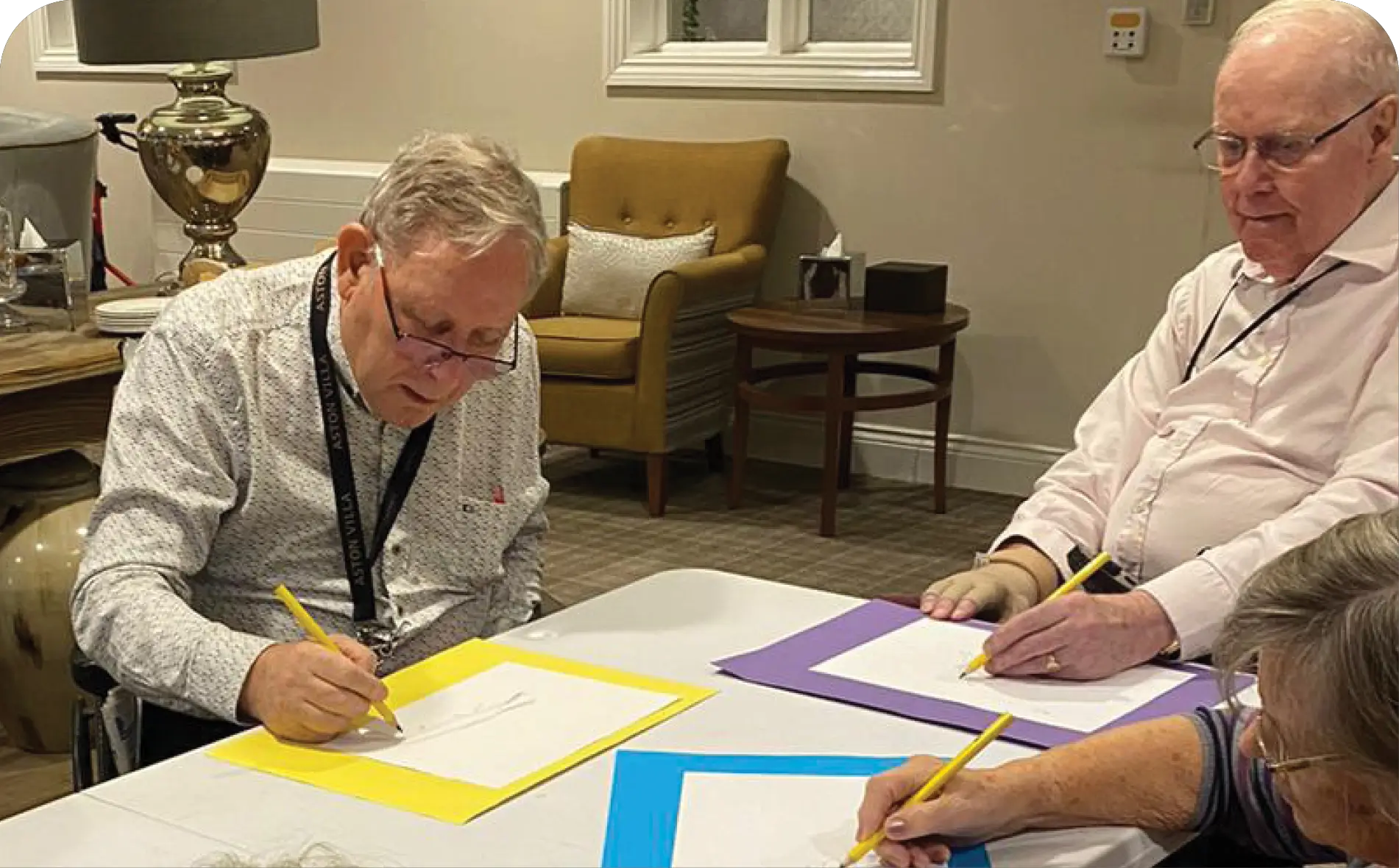
Advanced Group Work for Older Adults
This one-day Advanced Practices course imparts essential theory and practical skills for group work in Drawing and Talking.
1 day (9.00am to 3.30pm)
£325 + VAT (per delegate)
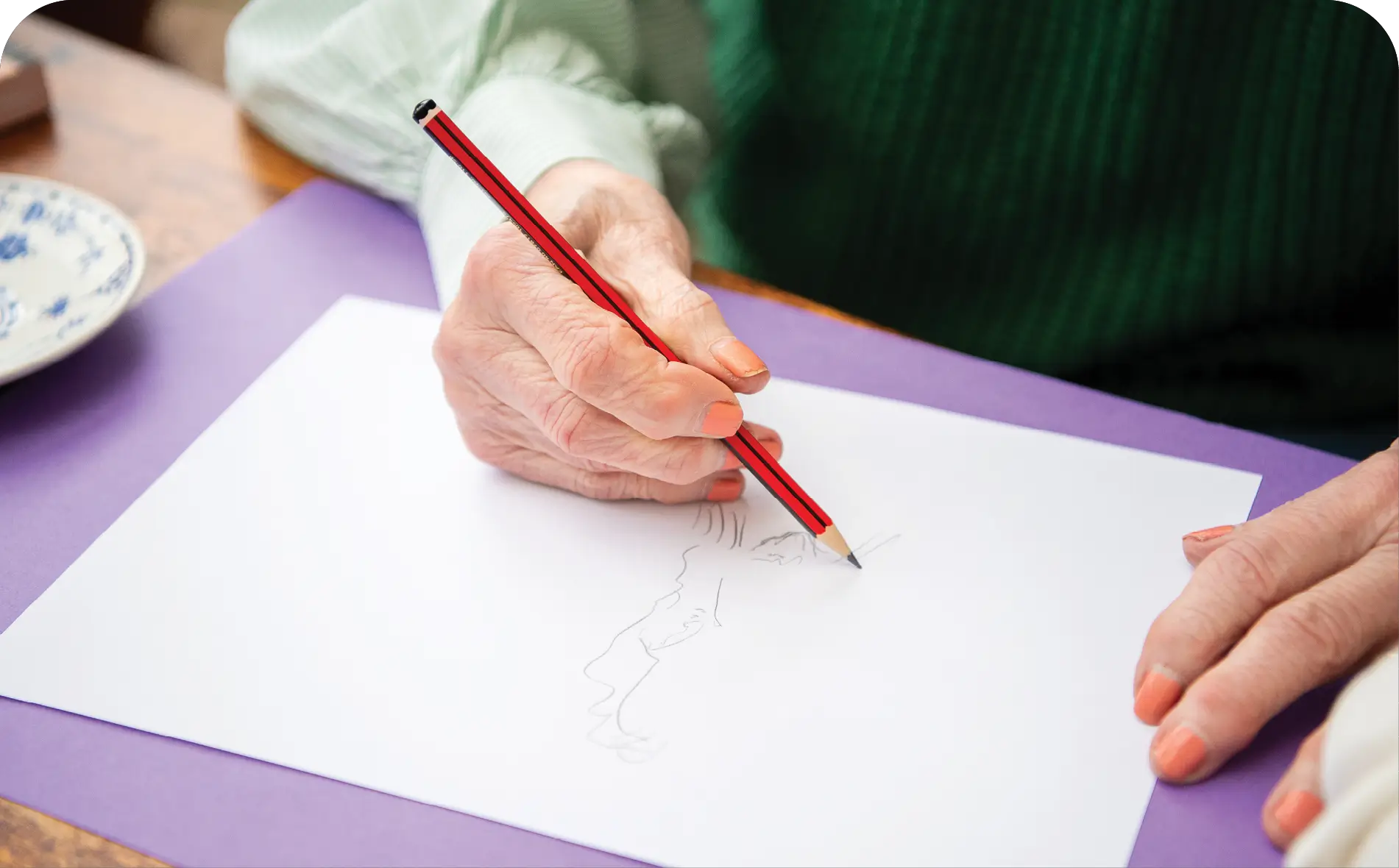
Review Your Drawing and Talking Practices
Following the training you will have up-to-date knowledge of risks to adults, safeguarding trends and safeguarding adults procedures.
Following the training you will have up-to-date knowledge working with older adults and topics such as dementia.
2 hours
£80 + VAT (per delegate)

